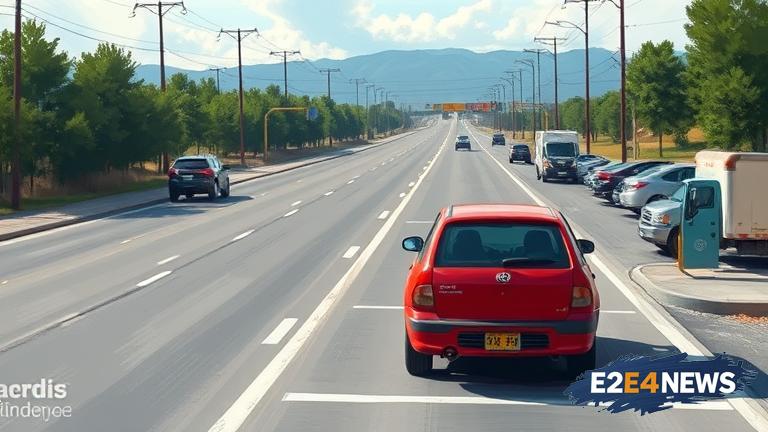In a bold move, Alabama Attorney General Steve Marshall has joined forces with 25 other states to challenge California’s ban on gas-powered vehicles. The Golden State’s decision to phase out gas-powered cars and trucks by 2035 has sparked a nationwide debate, with many arguing that it infringes upon federal law and will have severe economic consequences. Marshall and his counterparts contend that California’s actions are a clear overreach of authority, as the federal government has the sole power to regulate fuel economy standards. The coalition of 26 states is determined to put an end to California’s ‘illegal war on gas-powered cars and trucks,’ as Marshall put it. The ban, which was announced in 2020, aims to reduce greenhouse gas emissions and promote the adoption of electric vehicles. However, critics argue that it will lead to significant job losses, particularly in the automotive industry, and will disproportionately affect low-income households who cannot afford the higher upfront costs of electric vehicles. Furthermore, the ban is expected to have a devastating impact on rural communities, where access to charging infrastructure is limited. The 26-state coalition is seeking to block California’s ban, citing the federal Energy Policy and Conservation Act, which prohibits states from setting their own fuel economy standards. Marshall and his fellow attorneys general argue that California’s actions are a clear violation of this law and will have far-reaching consequences for the entire country. The dispute is likely to end up in court, where the coalition will argue that California’s ban is unconstitutional and should be struck down. The case has significant implications for the future of the automotive industry and the country’s energy policy. As the nation’s most populous state, California’s actions have the potential to influence other states and shape the country’s environmental agenda. However, the 26-state coalition is determined to ensure that any changes to the country’s energy policy are made at the federal level, rather than through unilateral actions by individual states. The ban has also sparked concerns about the availability and affordability of electric vehicles, as well as the strain it will put on the nation’s energy grid. With the rise of electric vehicles, there are concerns about the increased demand for electricity and the potential for power outages. The coalition argues that these concerns need to be addressed at the federal level, rather than through a patchwork of state laws. The dispute highlights the ongoing debate about the role of states in shaping the country’s energy policy and the need for a comprehensive and coordinated approach to addressing climate change. As the case moves forward, it is likely to have significant implications for the automotive industry, the environment, and the economy. The 26-state coalition is committed to protecting the interests of their citizens and ensuring that any changes to the country’s energy policy are made in a fair and lawful manner. The case is a testament to the ongoing struggle between states’ rights and federal authority, and the need for a balanced approach to addressing the country’s energy needs. In conclusion, the 26-state coalition led by Alabama Attorney General Steve Marshall is determined to challenge California’s ban on gas-powered vehicles and ensure that any changes to the country’s energy policy are made at the federal level. The case has significant implications for the future of the automotive industry, the environment, and the economy, and will likely be closely watched by lawmakers, industry leaders, and environmentalists alike.
